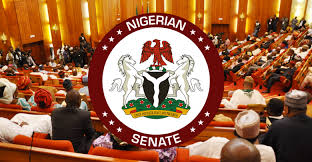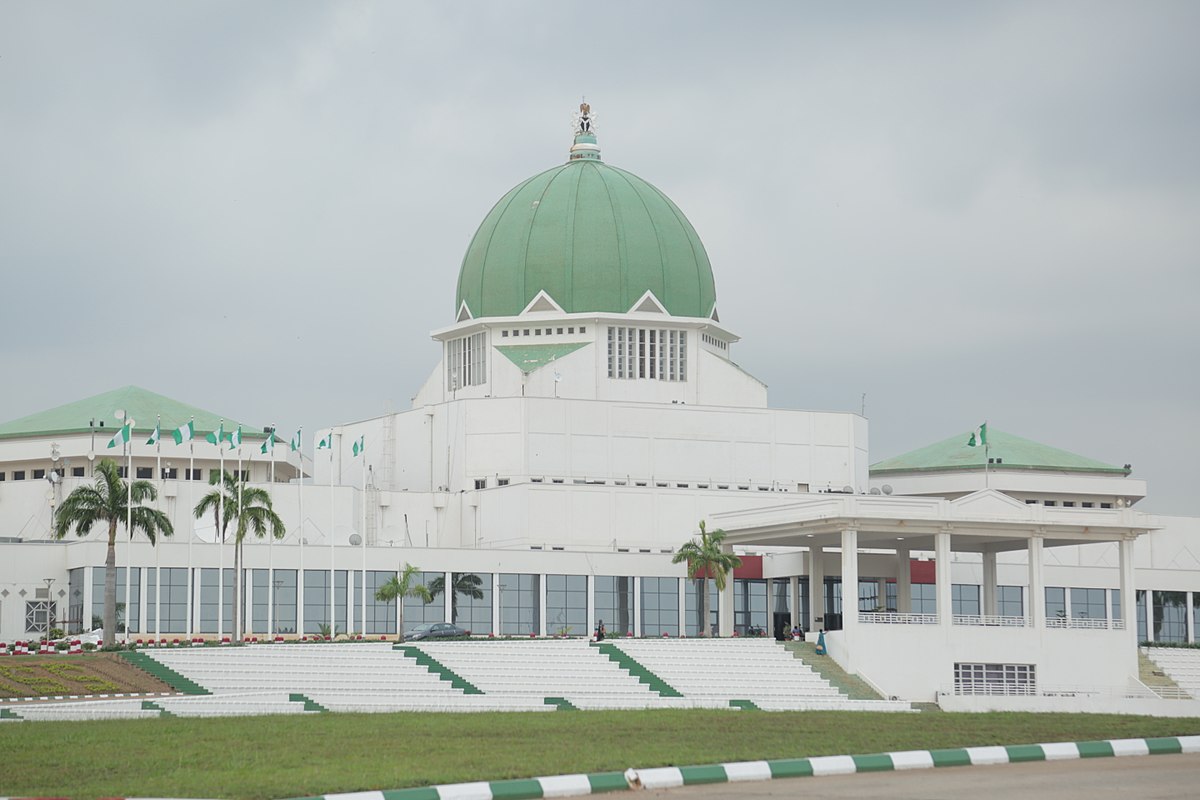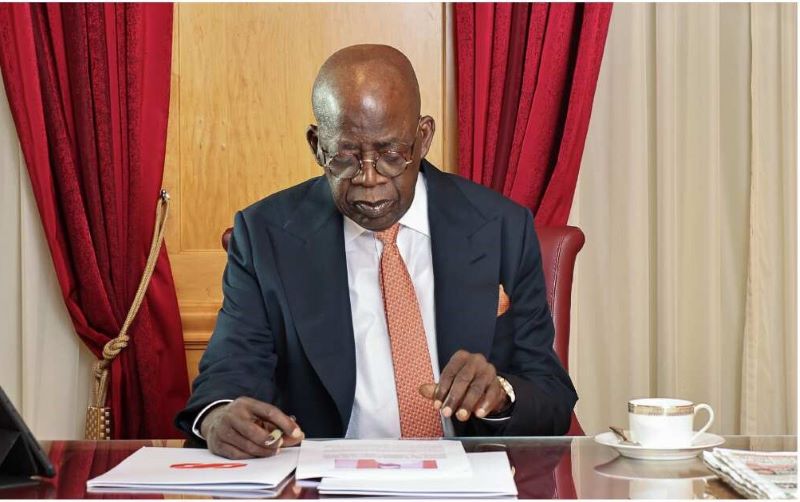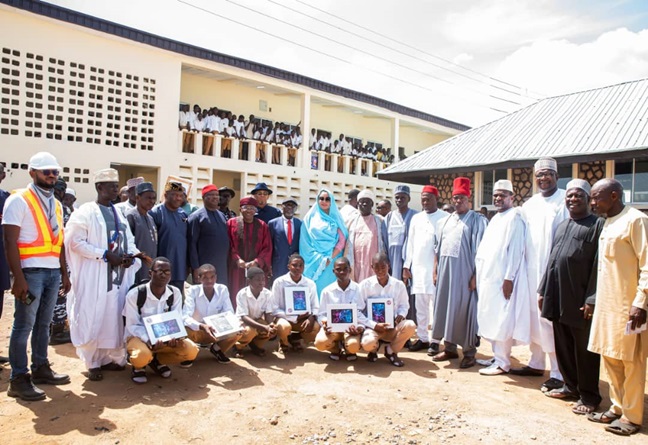Legislature
Senate moves to standardise employment in informal sector

In its bid to regulate and formalise informal sector employment in Nigeria, the Senate has considered and passed for second reading a bill in that direction.
The bill also seeks to empower the National Directorate of Employment (NDE) to issue licences and monitor privately owned employment agencies whose responsibility will be to enroll employees, such as domestic workers, apprentices and interns in their data bank, safeguard and enhance their social security and oversee their social recruitment by employers who engaged in legitimate occupation on such terms and conditions as may be agreed by the parties.
Leading the debate on the bill, its sponsor, Senator Mohammed Sani Musa (APC-Niger East), said the primary goal of the bill is to regulate the sector to promote strategic objectives.
These objectives, he said, included “the promotion of rights at work, employment, social protection and social dialogue.
“On the contrary, many jobs in the informal labour market in Nigeria still experience work deficit. Employees in the informal sector are often seen as having no right and are not treated fairly by their employers. All of these, this bill seeks to correct.
“This bill empowers the National Directorate of Employment(NDE) to issue license and monitor the activities if Employment Agencies throughout the country.”
According to Senator Musa, “the informal sector is usually regarded as the residual labour market where labour is highly heterogeneous and sources of income are not largely wage dependant; working time is discretionary and some jobs are not paid at all.
“The wide range of information available is that the operations in the sector are usually in small scale; that production technique is labour intensive and that ownership is usually private.
“In most cases, the workers in this sector are family members, apprentices and few paid employees.
“Labour practices within the informal sector of Nigerian economy show evidence of violation if employees’ right and non implementation of labour regulations.
“Although the informal sector provides a safety net for skilled, semi-skilled or unskilled labour who could not find job in the formal market, however, the informal sector in Nigeria has practices that are not in conformity with the International Labour Organisation (ILO) best practices as ratified in its conventions
“Notwithstanding that Nigeria is a signatory to these conventions, there are still a lot of deficits in the implementation of these conventions.
“One of such areas of concern relates to decent work deficits. Decent work is work with fair and equal treatment, decent renumeration, and fair conditions of employment, safety and social protection, opportunities for training and development, and collective bargaining.”
Commenting on the bill, Senator Aliyu Magatakarda Wamakko (APC-Sokoto North) described it as “timely and desirable in today’s modern Nigeria ”
On his part, Senator Aliyu Sabi Abdullahi (APC – Niger North) decried the unfair treatment of employees in the informal sector by their employers, saying that the situation called for concern and urgent steps to remedy it.
Abdullahi, however, called for a balance protectiion of both the employees and employers in the informal sector, as according to him, the employers also suffer indecent treatment from their employees.
He called for integration of data obtained from registration of such employees by the employment agencies with the National Data Base to avoid engaging unscrupulous foreigners for such employments.
After the Bill passed for second reading, the Senate President, Ahmad Lawan, referred it to the Senate committee on Labour and Productivity for further legislative process.
Legislature
NASS modifies NDLEA Act, Prescribes Life Imprisonment for Drug Traffickers

The National Assembly has modified the National Drug Law Enforcement Agency (NDLEA) Act to prescribe life imprisonment for individuals found guilty of storing, transporting, or concealing illicit drugs and substances.
The amendment was adopted on Thursday during plenary, presided over by Deputy Senate President Barau Jibrin, following broad support from the senators.
The amendment reflects a harmonised position of the Senate and the House of Representatives on Section 11 of the NDLEA Act.
The House had earlier passed an amendment prescribing life imprisonment for drug traffickers, while the Senate had proposed the death penalty.
To reconcile the differences, a conference committee of both chambers was convened. Senator Tahir Monguno, Chairman of the Senate Committee on Judiciary, Human Rights, and Legal Matters, presented the harmonised version to the Senate.
He urged lawmakers to adopt the House’s position of life imprisonment, arguing that enforcing the death penalty could lead to the execution of over 900 accused persons currently awaiting trial for drug-related offenses.
The Deputy Senate President who presided over the plenary had put the resolution to a voice vote, and the majority of senators supported the amendment.
The approved version stipulates life imprisonment for offenders.
The amended section now reads:
“Anybody who is unlawfully involved in the storage, custody, movement, carriage, or concealment of dangerous drugs or controlled substances and who, while so involved, is armed with any offensive weapon or is disguised in any way, shall be guilty of an offence under this Act and liable on conviction to be sentenced to life imprisonment.”
This amendment aims to strengthen the fight against drug trafficking while addressing concerns over human rights and the judicial implications of the death penalty.
The move is part of efforts to curb the growing menace of drug trafficking and its adverse effects on Nigerian society. According to Senator Monguno, the life imprisonment penalty strikes a balance between deterrence and humane judicial practice.
With the amendment, the NDLEA now has a robust legal framework to prosecute offenders and combat drug-related crimes effectively.
Legislature
President Tinubu urges Senate to approve ₦1.767trn External Loan

President Bola Ahmed Tinubu has formally requested the National Assembly’s approval for a $2.209 billion (₦1.767 trillion) external borrowing plan to finance part of the ₦9.17 trillion fiscal deficit in the 2024 budget. The loan, included in the 2024 Appropriation Act, is critical to the government’s broader strategy for economic recovery and growth.
In a letter to Senate President Godswill Akpabio, President Tinubu noted that the borrowing aligns with the provisions of Sections 21(1) and 27(1) of the Debt Management Office (DMO) Establishment Act, 2003. He also indicated that the Federal Executive Council (FEC) had approved the plan.
The President explained that the funds would be sourced through Eurobonds or similar external financial instruments. A detailed summary of the loan’s terms and conditions accompanied the letter to guide legislative scrutiny.
“This borrowing is necessary to address the budget deficit and fulfill our fiscal strategy for 2024. Swift approval will enable us to move forward with mobilizing these funds,” the President stated, emphasizing the urgency of the request.
Senate President Akpabio referred the matter to the Committee on Local and Foreign Deb
Legislature
Senator Natasha Transforms Kogi Central Schools with 5,000 Digital Learning Devices

By Isah Bala
Access to quality education is a cornerstone of societal progress, and Senator Natasha Akpoti-Uduaghan is embodying this vision by bringing transformative educational tools to Kogi Central. In a groundbreaking initiative, the senator recently provided 5,000 digital learning devices to public primary and secondary schools in her district, aiming to bridge the digital divide and set a new educational standard.
The devices, unveiled at Abdul Aziz Attah Memorial College (AAAMCO), are preloaded with the Nigerian curriculum from UBEC and internationally acclaimed educational resources, including Khan Academy and Discovery Kids. Through this initiative, students will experience interactive learning, enabling them to explore subjects in depth, enhance digital literacy, and engage with complex topics in a hands-on way.
This project is just the beginning of Senator Natasha’s ambitious plan to make “smart schools” the norm in Kogi Central. She envisions a future where every child in her district has equal access to digital learning, stating, “My dream is to equip all public primary and secondary schools in Kogi Central with digital learning devices before the end of my tenure in 2027.”
Beyond device distribution, the senator’s initiative includes UBEC-led teacher training to ensure educators are equipped to integrate these tools into their classrooms effectively.
With this dual approach of student and teacher empowerment, Senator Natasha is laying a foundation that will support digital literacy and skill development for years to come.
Senator Natasha’s commitment to educational advancement represents a significant step forward for Kogi Central, ensuring that young students have access to the tools they need to succeed in an increasingly digital world. This initiative marks her dedication to the constituency that entrusted her with this mandate.
-

 Crime1 year ago
Crime1 year agoPolice nabs Killer of Varsity Lecturer in Niger
-

 News10 months ago
News10 months agoFCT-IRS tells socialite Aisha Achimugu not to forget to file her annual returns
-

 Appointment1 year ago
Appointment1 year agoTinubu names El-Rufai, Tope Fasua, others in New appointments
-

 News From Kogi1 year ago
News From Kogi1 year agoINEC cancells election in 67 polling units in Ogori-Magongo in Kogi
-

 News From Kogi1 year ago
News From Kogi1 year agoEchocho Challenges Tribunal Judgment ordering rerun in 94 polling units
-

 News1 year ago
News1 year agoIPOB: Simon Ekpa gives reason for seperatists clamour for Biafra
-

 Metro8 months ago
Metro8 months ago‘Listing Simon Ekpa among wanted persons by Nigeria military is rascality, intimidation’
-

 News10 months ago
News10 months agoKingmakers of Igu/ Koton-Karfe dare Bello, urge him to reverse deposition of Ohimege-Igu
